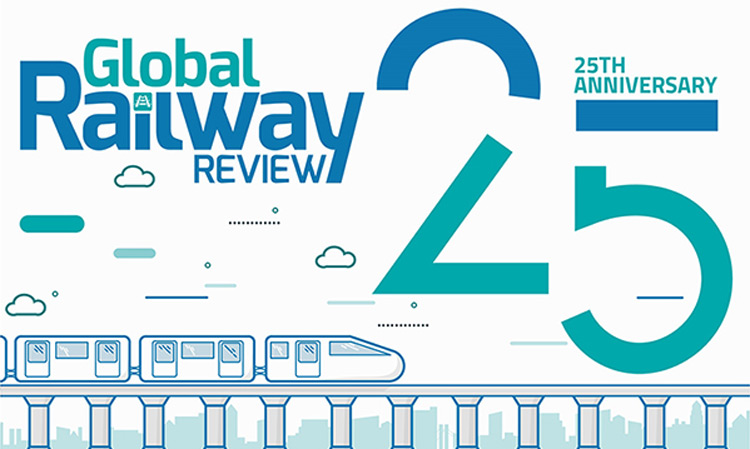25 years in rail: Reflecting on developments and driving forward growth
Posted: 25 June 2019 | Philippe Citroën | No comments yet
As part of Global Railway Review’s 25th anniversary, Philippe Citroën, Director General of UNIFE, reflects on industry developments and discusses the trends that will drive rail’s future growth.


The European rail industry has constantly moved forward. Now manufacturers and suppliers are continuing to strive to satisfy the evolving needs and expectations of their customers and of society.
There are several trends that have driven the growth and development of the European rail supply industry over the past 25 years. Megatrends such as urbanisation, population growth and decarbonisation of transport have enhanced the development of rail transportation, resulting in rail becoming the backbone of the mobility of the future as highlighted in the ERRAC 2050 Vision.
As we look to the future, digitalisation will continue to be a key enabler for the transformation of rail transport to become an even more efficient, reliable, sustainable and connected mode of transport. To accomplish this transformation, research and innovation (R&I) will have a fundamental role and the work carried out by the Shift2Rail Joint Undertaking is supporting the rail sector to develop various value-added products and services. Shift2Rail has already significantly improved the cooperation between rail stakeholders in the field of R&I.
Building on the success and momentum of Shift2Rail, a refocusing of collaborative rail-related research activities is required for the post-2020 European research framework programme, Horizon Europe. In this respect, the increasing need for shared mobility, customer-focused, digital and intermodal transport tools shall be a guiding principle for an extension of Shift2Rail within Horizon Europe. UNIFE and its members have identified nine ‘key enablers’ ranging from, among others, automated rail transport and Mobility-as-a-Service (MaaS), to maintenance of the future and optimised infrastructure, with the objective of making rail transport the backbone of mobility.
In addition, UNIFE’s new Vision Paper on digitalisation outlines the views, priorities and ambitions of the European rail supply industry on digital technologies which are shaping the way our sector is moving forward in the years to come. UNIFE’s vision focuses on five major areas: Big Data, Cyber-Security, Artificial Intelligence, New Mobility Services and Digitalisation of the Freight Logistics Chain, which are contributing to the greatest extent to the digital transformation of the rail sector.


Philippe Citroën joined UNIFE in June 2011. He began his career as Transport Advisor at the French Permanent Representation to the EU in 1986 and then became Member of the Cabinet of the French Transport Minister in 1990. In 1993 Philippe became Manager and Chief of Staff at RATP Paris and joined the SNCF as Strategy Director in 1999. Prior to UNIFE, Philippe served for eight years as CEO of Systra. Philippe is a graduate of Paris II University in Public Law, holds a Diploma from the Paris Institute of Political Studies (Sciences Po) and also studied at the Ecole Nationale d’Administration (ENA), where he also lectured about Rail and Urban Transport.
Issue
Related topics
Artificial Intelligence (AI), Big Data, Cargo, Freight & Heavy-Haul, Cyber-Security, Digitalisation, Infrastructure Developments







